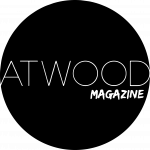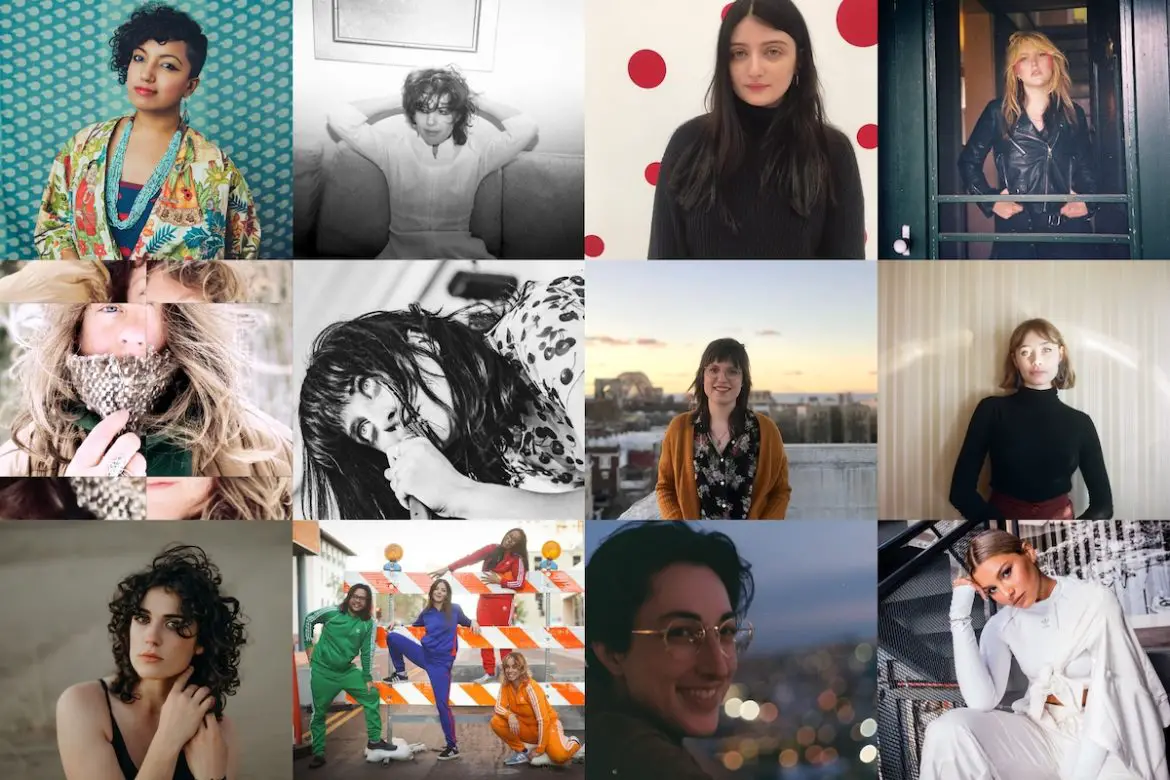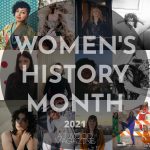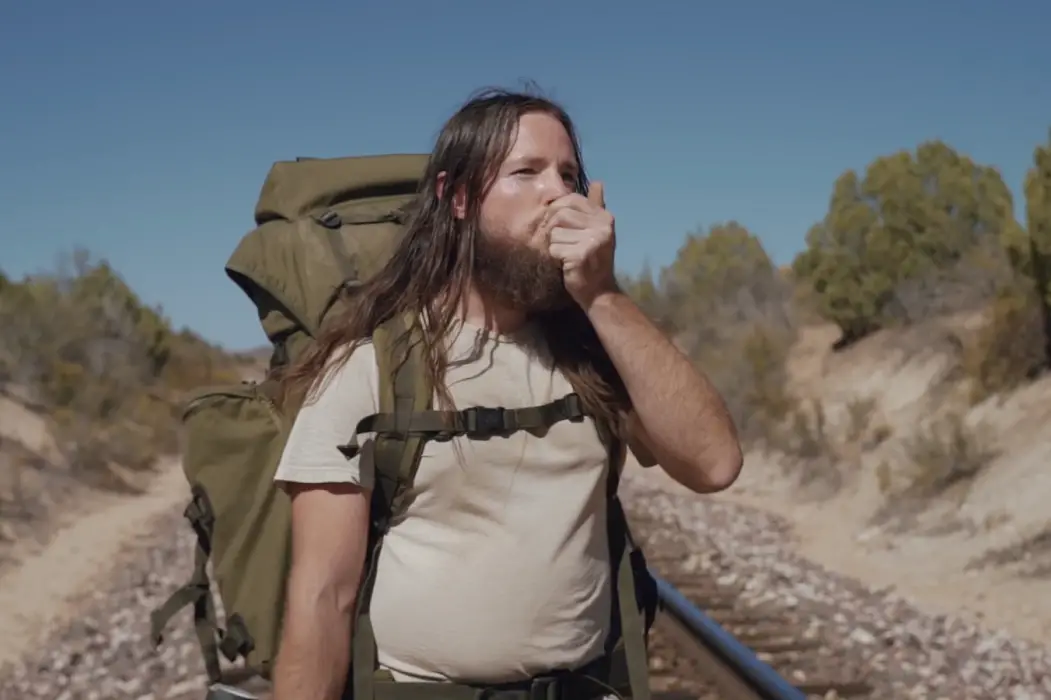Just as the pandemic began in 2020, a wave of protest and calls for equity were the anthems of the year, leading to important conversations surrounding inclusivity and equitable treatment for LGBTQ+ communities, BIPOC communities, and women. Intersectionality must be front and center in these conversations, and those conversations must continue into 2021. Today, and throughout the month of March, Atwood Magazine will be continuing those conversations in celebration of Women’s History Month — including artists and publicists alike discussing the state of the music industry and its role in gender equity.
In Part VI of our series, Atwood spoke with and highlighted 12 women in the industry, asking them to reflect on the ways misogyny can be combatted, how they perceive their place in the industry, and how we can choose to challenge the music industry for better representation.
– Adrian Vargas, Managing Editor
– Mariel Fechik, Junior Editor
•• •• •• ••
Nina Ljeti (Kills Birds), Alexandra Savior, Tristen, Shilpa Ananth, Carter Lou McElroy (Cyote), Katie Kuffel, Tabitha Nauser, Dana Kenney (AntiFragile Music), Prism Bitch, Ari Fouriezos (Sorry, Mom! Productions), Caroline Kingsbury, Ruby Alioto (Terrible Records).
•• ••
:: Atwood Magazine Celebrates Women ::
 follow our Women’s History Month playlist on Spotify
follow our Women’s History Month playlist on Spotify 
:: Nina Ljeti (Kills Birds) ::

What kind of space do you want to carve out for yourself as a woman in this industry?
I don’t want to be seen as a “female singer.” I want to be seen solely as a singer and an artist and a person. I want to level the playing field between men and women in this industry. I don’t want to be defined by my sex in any way because I don’t feel a particular loyalty to my gender.
Misogyny can be so insidious in the music world. What are some ways you've been able to combat it and what kind of advice would you offer to women who are just coming into the industry?
Women entering this industry are often put into a position where they’re offered opportunities that at first appear to be a “no-strings-attached” scenario but ultimately become much more nefarious. I experienced this myself a few years ago and it crushed me. I almost quit making music for good. But the reason why I never spoke up/did anything about it was because I was too afraid that speaking up would squash the “opportunity” that I thought I had. So that’s my biggest advice: do not be afraid. Do not be afraid to turn your back on something/someone that makes you feel uncomfortable, even though it’s sold to you as an opportunity. Nothing is worth putting yourself in danger, both mentally and physically.
In addition, you must protect your art at all costs. Situations like this soil the love you have for your work and that love can be hard to get back.
How would you challenge the music industry in order to increase meaningful representation and provide better support for women?
I want to preface this by saying that I am one of the lucky ones because I now find myself in a situation where I have bandmates and a team that are not only fiercely protective of me but that also work to amplify my voice on and off the stage. It’s exciting to finally be in a place where I can relax and feel safe.
To challenge only the music industry does not get to the root of the problem. We need to work more as a society to address how women are measured. Women are appraised by different criteria. Superficial stats like age, sex, and appearance. If we’re young, we’re seen as profitable but vulnerable. As we get older, our decided “value” decreases. I’m feeling this myself now. As I turn 30 this year I can’t help but wonder if I’ll become irrelevant simply because I’m older. Will people relate to me? How did I get it into my head that aging would make me less appealing/relatable in the first place? That idea has been ingrained in me from an early age. We must all work to banish the concept that a woman’s opportunity for success is limited by her biology.
Lastly, what are you working on currently? Anything coming down the pipeline you’re excited to share with fans?
Kills Birds is working on our second album, written and recorded (safely) in September 2020. we’re so excited to share it with the world!
:: Alexandra Savior ::

What kind of space do you want to carve out for yourself as a woman in this industry?
I wish I didn’t have to answer this question “as a woman”, because as a musician I’m just dedicated to perfecting my craft, writing good songs, making honest art, and supporting myself financially. As a woman, I want fair recognition for the work that I’ve done as a songwriter and as a musician. That isn’t the reason I make music, and it isn’t my goal as a musician, but, I think because I’m a woman, and because I have collaborated with men on all of my projects, people just call me a “singer.” It’s been a burden to dig myself out of that hole. I just want it to be more clear that I’m doing the dirty work, that these songs come out of my brain, not that I don’t appreciate the musicians I have collaborated with, or that I don’t want other people to get the credit they deserve, but the assumption that I don’t write my chord structures and compositions feels like an assumption that wouldn’t be made if I was a man.
Misogyny can be so insidious in the music world. What are some ways you've been able to combat it and what kind of advice would you offer to women who are just coming into the industry?
I think I’ve been able to combat it by letting go of the times that I’ve been harassed or belittled, and just allowing myself to believe that I deserve to be in the space that I’m in, telling myself that I know what I’m doing, ignoring years and years of gaslighting, and remembering that I am the reason I make music, I am the place that it comes from. My advice to other women would be, don’t fall into the trap of being convinced by the machine that you need someone else to make your music be more pristine or successful, whatever you know now is a part of your journey, and it isn’t lesser because it’s different.
How would you challenge the music industry in order to increase meaningful representation and provide better support for women?
I think we need to hold space for more female musicians in general. But, one thing that really bothers me about the music industry is that people tend to categorize women into one big genre, and within that space, there are these “sub-genres” that are solely based off of the way these musicians look, the color of their hair, or skin, rather than the content of what they’re creating or how their music sounds. I also think that in order to be more supportive financially of women in music, the world of studio recording, touring, and songwriting, need to make more of an effort to hire women. I’m always relieved when a producer brings in female musicians, I think people just get into the groove of using the same 3-4 guys, work needs to be done on the producers’ side to invite more female musicians and songwriters into the studio, and onto the stage, and I have started to see that in small fragments since 2018, but would like to see more.
Lastly, what are you working on currently? Anything coming down the pipeline you’re excited to share with fans?
I am currently working on my third studio record in Los Angeles, I’m excited but I don’t really have a timeline for it. I’m trying not to rush myself, and that’s easy when you have a lot of spare time.
:: Tristen ::

What kind of space do you want to carve out for yourself as a woman in this industry?
I strive to have heroic honesty, depict unique and accurate characters in untold stories, and I try to remember that art is therapy and that women are masters of emotional energy and the givers of life.
Misogyny can be so insidious in the music world. What are some ways you've been able to combat it and what kind of advice would you offer to women who are just coming into the industry?
I think this can start with a bit of shadow work women can do: locating stereotypes, toxic cultural ideas about women that limit you. Ideas like: Sex sells, singers are not musicians, masculinity > femininity, you can’t have children and a career, other women are your competition, behind every woman artist, there is a man calling the shots …the list goes on and on. Once one recognizes the cultural taboos at play in their own heads, “the things women shouldn’t do,” whether we are rebelling against them or playing into them, we can easier recognize and navigate oppression.
I think learning how to identify and calmly correct sexism would also help us. No one thinks they are a sexist, but people do and say sexist things. It goes very deep. It’s hard for me in my day-to-day life to figure out what is just plain old luck and what is sexism, and I say that as a woman who carries the privilege of being white in this country. So I try to focus on creating a culture of abundance, getting away from competition and into collaboration, into love. My music invites that I think.
How would you challenge the music industry in order to increase meaningful representation and provide better support for women?
Many women musicians I know walk this line of loving being a woman and adoring other women, and then hating being categorized in the “female genre”, as if we need reminders that musicians, journalists, still see us as the second sex. In an aim to increase representation, the industry picks a lazy category instead of integrating women into the conversation.
If we are talking about how to increase representation in the industry, commerce, the answer is in the question, economics. The answer is to fund women’s art. Buy records made by women. Hire women creatives and pay fair wages. When you run a music venue, or book a festival, check your lineup to make sure you are doing the extra work to balance representation. Elect women representatives and vote to fund free healthcare.
Lastly, what are you working on currently? Anything coming down the pipeline you’re excited to share with fans?
Yes. I’ve just put out a single for Complex, a song off of my forthcoming record, Aquatic Flowers, which comes out June 4 on Mama Bird Recording Co.
:: Dana Kenney, Streaming and Marketing Manager, AntiFragile Music ::

What kind of space do you want to carve out for yourself as a woman in this industry?
My goal is to be known as a strong leader in the marketing and branding space, someone who drives an artist’s career with campaigns that are bold and creative.
Misogyny can be so insidious in the music world. What are some ways you've been able to combat it and what kind of advice would you offer to women who are just coming into the industry?
I’ve been fortunate in that I’ve come up working alongside mostly women as my peers, so it’s been amazing to have that support system of colleagues and friends who are going through exactly the same experiences. As a woman it’s definitely important to hold onto or seek out a supportive community. On the flip side of that, all of my bosses have been men. They’ve all been wonderful people to work for, but I have not had a solid example of female leadership in my personal career, and that’s something that has made it difficult to see myself in those roles and envision my future. In light of that, I think the best advice I can give is when you don’t see the example you need, or the path laid out for you, give yourself permission to create the path and create the space for yourself. The best opportunities I’ve had came from the moments that I didn’t wait for permission from someone else.
How would you challenge the music industry in order to increase meaningful representation and provide better support for women?
One way to increase representation for women in the industry would be for conferences such as Music Biz, MIDEM, SXSW, etc, to be committed to continually featuring more women as speakers and moderators. And more than the “token” woman too — I would love to see 50% or more women speakers across all panels.
:: Shilpa Ananth ::

What kind of space do you want to carve out for yourself as a woman in this industry?
A space where I feel safe be it related to my body or my mind, am treated (and paid) equally to my counterparts and can be my most authentic self without the constant fear of not being accepted (or boxed into stereotypes) because of my brown skin, Indian heritage, how I identify as an artist, and the kind of choices I make with my musical expression.
Misogyny can be so insidious in the music world. What are some ways you've been able to combat it and what kind of advice would you offer to women who are just coming into the industry?
Coming from a dominantly patriarchal society, it took me some heavy rewiring and many a moment of being silenced or getting looked over, to finally use my voice, take up space, and speak up for my rights. I always thought that it was my fault. Like, I didn’t do enough or wasn’t good enough, but I guess I finally had enough when I realized the current culture would never change if we acted like this was normal, or in any way okay. It’s helped me know exactly who I want to work or be associated with, and it’s definitely empowered me to be sure of my opinions and intentions. Though it took me a while to get here, I’d say work hard on your craft, know your worth, and get ready to raise hell if you’re treated any less than the true Queen that you are.
How would you challenge the music industry in order to increase meaningful representation and provide better support for women?
Actively Support Diversity, Inclusion, and Belonging Programs such as She Is The Music, and Women In The Mix. Balance of Opportunities between performing artists, songwriters, and producers so that the percentage of women and those who identify as women can even out in these roles, as compared to the higher percentage currently in favor of the opposite sex. Better Festival and Music Venue curation to include a line up that showcases equal representation, and fair distribution of opportunity.
Lastly, what are you working on currently? Anything coming down the pipeline you’re excited to share with fans?
My next single and music video “FEAR” off my upcoming EP Reproduction drops on April 20th, and I cannot wait for everyone to witness just the magnitude of madness coming their way!
:: Carter Lou McElroy (Cyote) ::

What kind of space do you want to carve out for yourself as a woman in this industry?
A space that embraces consistent acts of radical kindness when it comes to collaboration, critique & supporting fellow artists.. over one that encourages {what can often feel like} toxic competitive vibes. As a queer woman who has worked in music for over a decade, I also want to be part of a legacy that prioritizes spotlighting the voices, talents & perspectives of the queer community at every step of the artistic process. If lyrics are the “preaching” — the method of collaboration is “practice.”
Misogyny can be so insidious in the music world. What are some ways you've been able to combat it and what kind of advice would you offer to women who are just coming into the industry?
Having a solid support group of other womxn working in the industry is invaluable. We all have a story, and when you can hold space for one another and provide the opportunity for those stories to be heard/expressed, there is this feeling of forwarding motion for everyone together, both in our collective work as well as separately. Don’t let anyone ever tell you what you are or aren’t capable of. Don’t let them underestimate or laugh you off because you don’t have a look or resume that illustrates your real worth. My grandfather, who I’m actually named after, always used to tell us grandkids: “The biggest lion on the mountain doesn’t have to roar.” Know you’re THAT lion and that there is Nothing you have to prove to anyone.. ever.
How would you challenge the music industry in order to increase meaningful representation and provide better support for women?
By putting money in their pockets. Keeping this topic at the forefront of every interview and opportunity I have to work with someone new, especially when it comes to producers, recording engineers, and other creative collaborators. WOC to the front. Indigenous artists to the front. It is the responsibility of everyone else to support and conduct that shift.
Lastly, what are you working on currently? Anything coming down the pipeline you’re excited to share with fans?
Heck yea! This spring I’ll be releasing a new video/single collaboration with Nashville-based artist Sarah Gallina. The project has served as an emotional confessional while processing this new way of life where I have found myself to be isolated for most of the time. The song, “None The Wise,” is about lying in the bed of choices you’ve made for yourself in life so far, unable to escape or change where they have brought you.
:: Katie Kuffel ::

What kind of space do you want to carve out for yourself as a woman in this industry?
Misogyny can be so insidious in the music world. What are some ways you've been able to combat it and what kind of advice would you offer to women who are just coming into the industry?
I actually wrote an essay about this recently. There’s overt misogyny which is easy to see and point out. It’s the black and white Disney villain that everyone can agree is bad. What’s even more insidious however is the subtle knife of misogyny. The conversations you’re not invited to, the conversation styles prevalent in professional settings that rely on classical masculine traits (assertiveness! Risk-taking!) that are re-labeled as new-age, feminist rabble-rousing.
My strategies are varied depending on the situation. Number one, feel safe. Number two, surround yourself with people who build you up and push your ideas forward. Number three, find folks to lean on. Find places that will listen to your complaints, who will build you up when people only see your gender or your appeal. Know that feminine, or woman-centric narratives aren’t what has been lauded in the past as triumphant works, but just. Just know they’re just as important, just as poignant, just as amazing as anything else, if not more so.
How would you challenge the music industry in order to increase meaningful representation and provide better support for women?
Look at your percentages. It’s as easy as that. Take a facts-based, numbers approach to your representation. If you want equality, representation, more women in places of power, then put them there. Open those doors, and do your research about hiring bias, etc. It’s lazy to do anything but.
Lastly, what are you working on currently? Anything coming down the pipeline you’re excited to share with fans?
New album came out March 19th! That’s the big one. Long time in the works, and so stoked to finally share it with the world.
:: Ari Fouriezos, Artist Manager, Sorry, Mom! Productions ::

What kind of space do you want to carve out for yourself as a woman in this industry?
My goal has always been to provide some visibility – I saw few people like me doing this work when I was younger. My hope was that more young women and queer people would be inspired to get involved, helping make this industry a healthier and more progressive playing field. I always strive to promote beautiful voices that actually represent what the world around us looks like. As an artist manager specifically, I strive to culture really comfortable and collaborative relationships with my clients. If they are empowered to create the art they want to create and are working to make the world a better place in whatever ways they can, then I am doing my job well.
Misogyny can be so insidious in the music world. What are some ways you've been able to combat it and what kind of advice would you offer to women who are just coming into the industry?
It’s a constant struggle but you have to be, and remain, confident in yourself and your work in the face of constant gatekeeping and misogyny. Trust your instincts, trust your unique creative process, and never forget to come from a place of empathy and understanding in all of your interactions. The key is to keep your self-worth intact despite the toxic, insidious nature of this industry. If you can practice mindfulness and stay confident in your abilities then you can learn to advocate for yourself, and advocating for yourself is essential.
How would you challenge the music industry in order to increase meaningful representation and provide better support for women?
There are so many ways to do this, but it starts simply: hire women. If you are in a position to hire or shape teams in any way, your first priority should be to actively seek out BIPOC, women, and GNC people for the roles. If you think there aren’t enough qualified people available, you are making excuses. Our resumes often look different than those of our male counterparts because of a systemic lack of opportunities and resources. This does not make us less capable. Take a risk on your hires!
:: Tabitha Nauser ::

What kind of space do you want to carve out for yourself as a woman in this industry?
A lot of the women before me have inspired me, given me hope, laughed, and cried with me, and I just want to be able to pass that on to another young woman who might be struggling to find their place in the world. I want them to believe that they are capable of anything they set their minds to. That they own their voice and are allowed the freedom to express their thoughts. And most importantly to find and embrace love for themselves.
Misogyny can be so insidious in the music world. What are some ways you've been able to combat it and what kind of advice would you offer to women who are just coming into the industry?
I think the best way to be rid of misogyny is to be loud. Don’t make yourself small, don’t dim your light. A lot of the time early in my career, I was scared to be confrontational. I had the “I’m new to this, what do I know?” mentality, and I let a lot of things slide. But looking back, my gut was spot on. So my advice would be: you know what’s best for you, so always listen to that voice. And also, be YOU, be loudly you.
How would you challenge the music industry in order to increase meaningful representation and provide better support for women?
There are obviously a number of different things that could be done, but I would say transparency is key. There needs to be more transparency in the industry, where women can voice their concerns and to better build an environment where they feel included and supported.
Lastly, what are you working on currently? Anything coming down the pipeline you’re excited to share with fans?
I just had a new single release titled “Slow Down”. I’m also working on my next few singles which will be released in the summer! I’m very excited – We’ve been working really hard on these tracks and I can’t wait for release day!
:: Prism Bitch ::

What kind of space do you want to carve out for yourself as a woman in this industry?
We want to make an inclusive environment where it doesn’t feel strange to be a woman playing music. “Female Fronted” or “Chick Band” shouldn’t be a novelty. Powerful women playing music should just be a norm.
Misogyny can be so insidious in the music world. What are some ways you've been able to combat it and what kind of advice would you offer to women who are just coming into the industry?
We come at misogyny with strong confidence in our own skills. When we’re working with people in the industry at all levels, we’ve been talked down to, or had staff defer all technical questions to Chris (the one dude in our band). In these instances, you have to be strong at advocating for yourself, not necessarily combative, but you can’t leave room for it to be acceptable behavior to be talked down to. Don’t make yourself small for the benefit of other people’s egos.
How would you challenge the music industry in order to increase meaningful representation and provide better support for women?
We’d challenge the industry to include more femme, women-identifying, and non-binary persons in higher levels of technical and production positions, such as sound engineers, stagehands, producers, bookers, venue owners, etc. Also, normalizing that women can be musicians without relying on their sex appeal – that applies to men too. Packaging sex appeal can be damaging and demeaning.
Lastly, what are you working on currently? Anything coming down the pipeline you’re excited to share with fans?
We’re so excited to be releasing our debut full-length album, Perla – we’ve been working on this album since before the pandemic, and having it in the world feels really fulfilling. We’re also starting to write new material and anticipate recording more music someday soon. As soon as we’re able in accordance with CDC guidelines, we’ll be right back in the studio and on the road where we belong!
:: Caroline Kingsbury ::

What kind of space do you want to carve out for yourself as a woman in this industry?
A very queer, body-positive space!
Misogyny can be so insidious in the music world. What are some ways you've been able to combat it and what kind of advice would you offer to women who are just coming into the industry?
Stand up for yourself. Some people will try to tell you that your instincts are wrong or you can’t trust yourself because you aren’t as experienced as them. Trust your inner voice and create what you want to create. But also you don’t have to be perfect, and these standards you have in your mind of what you have to sound like and look like to be artists are false.
How would you challenge the music industry in order to increase meaningful representation and provide better support for women?
I know so many artists that are also producers of their music…I hear constantly that “there aren’t enough women producers” and “the lack of representation is because there just aren’t enough women producing.” That is completely false! I believe the idea of “producing” has become so blurred into just being an artist nowadays that if you have any knowledge of production and guide your production team on how you want your music to sound – you’re a producer. Some examples are Mariah Carey, Dolly Parton, Madonna…the industry portrayed them as “singers” etc but they were intricately involved in the songwriting and production of their music. They are not seen as “producers” because of the misogynistic very male nerdy image you think of when you hear the word “producer.” Expand the definitions for multi-faceted artists to be included.
Lastly, what are you working on currently? Anything coming down the pipeline you’re excited to share with fans?
My debut album Heaven’s Just A Flight is out April 16! I have some singles from the album already out – one of my faves from the record, “Massive Escape,” just came out.
:: Ruby Alioto, Label Manager, Terrible Records ::

What kind of space do you want to carve out for yourself as a woman in this industry?
I’ve been lucky to have mentors – both men and women – who have championed me throughout the years, and I want to cultivate that same safe space of absolute transparency for others. It feels like a world of opportunity has opened up when you see yourself represented in the career you want to pursue.
Misogyny can be so insidious in the music world. What are some ways you've been able to combat it and what kind of advice would you offer to women who are just coming into the industry?
While I’d like to say “use your voice, stand up for yourself,” I should take my own advice. It isn’t always that easy. It can feel paralyzing when you’re faced with the toxic situation you’ve always feared especially when it’s manifested in this “insidious” way. It can honestly be more difficult to combat when it isn’t so outward and instead it’s just underlying and deep-rooted. Go ahead, make yourself heard but there is always that realization that there’s only so much you can control. If you are not in a compatible work environment, know your limits, know your worth, and get out of there. I’m grateful to be in a role now where I feel empowered and treated with respect so I’m living proof that the right fit does exist!
How would you challenge the music industry in order to increase meaningful representation and provide better support for women?
Both successes and failures tend to carry different weights depending on if you’re a man or a woman. I’ve seen men get by with several strikes on their record yet there are no consequences to hinder them from a long and prosperous career. I’d ask people in powerful positions to look at every situation with more purposeful thought, ask yourself whether you’re setting a different standard for the men and women in your company. We’re all guilty of clouded judgment due to societal norms at one point or another but what we can do is take time to unlearn and give voice to marginalized individuals.
— —

Connect to Atwood Magazine on
Facebook, Twitter, Instagram
Discover new music on Atwood Magazine
:: Atwood Magazine Celebrates Women ::
 follow our Women’s History Month playlist on Spotify
follow our Women’s History Month playlist on Spotify 









